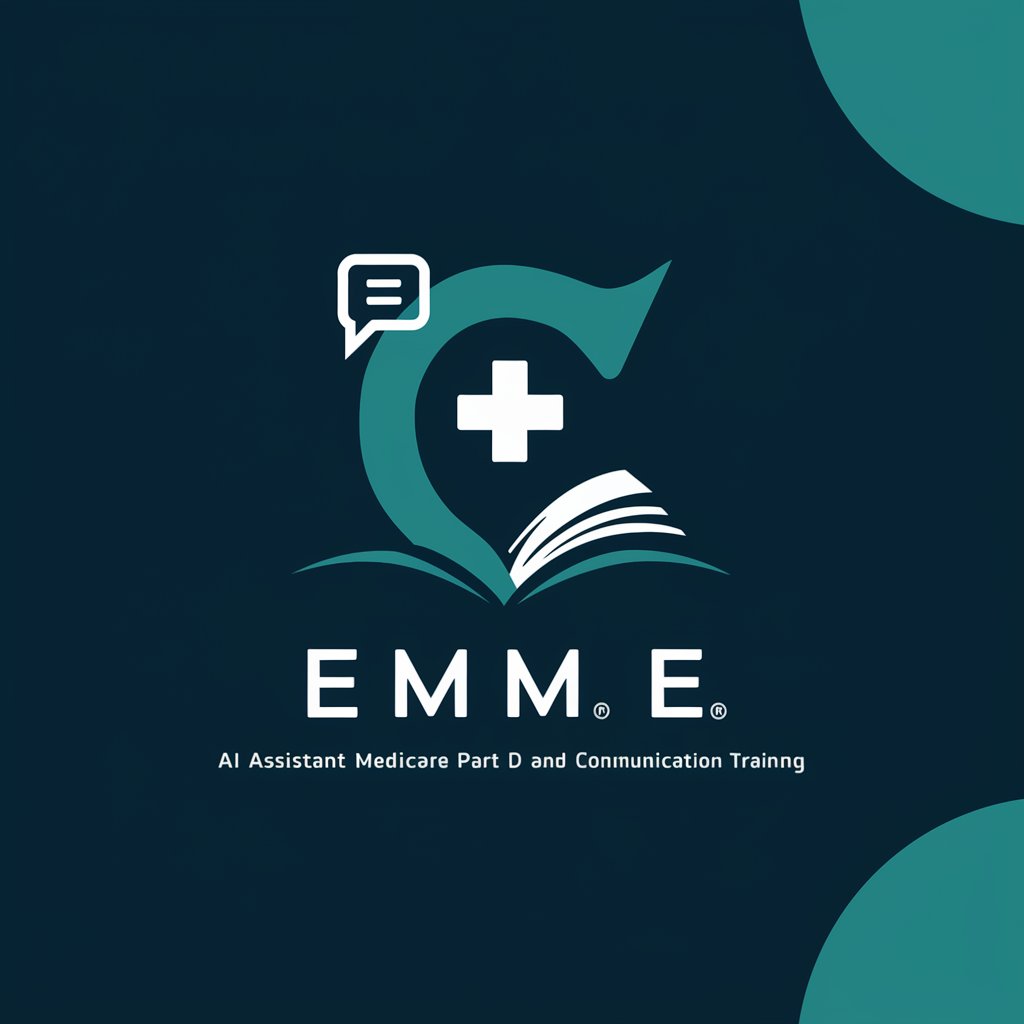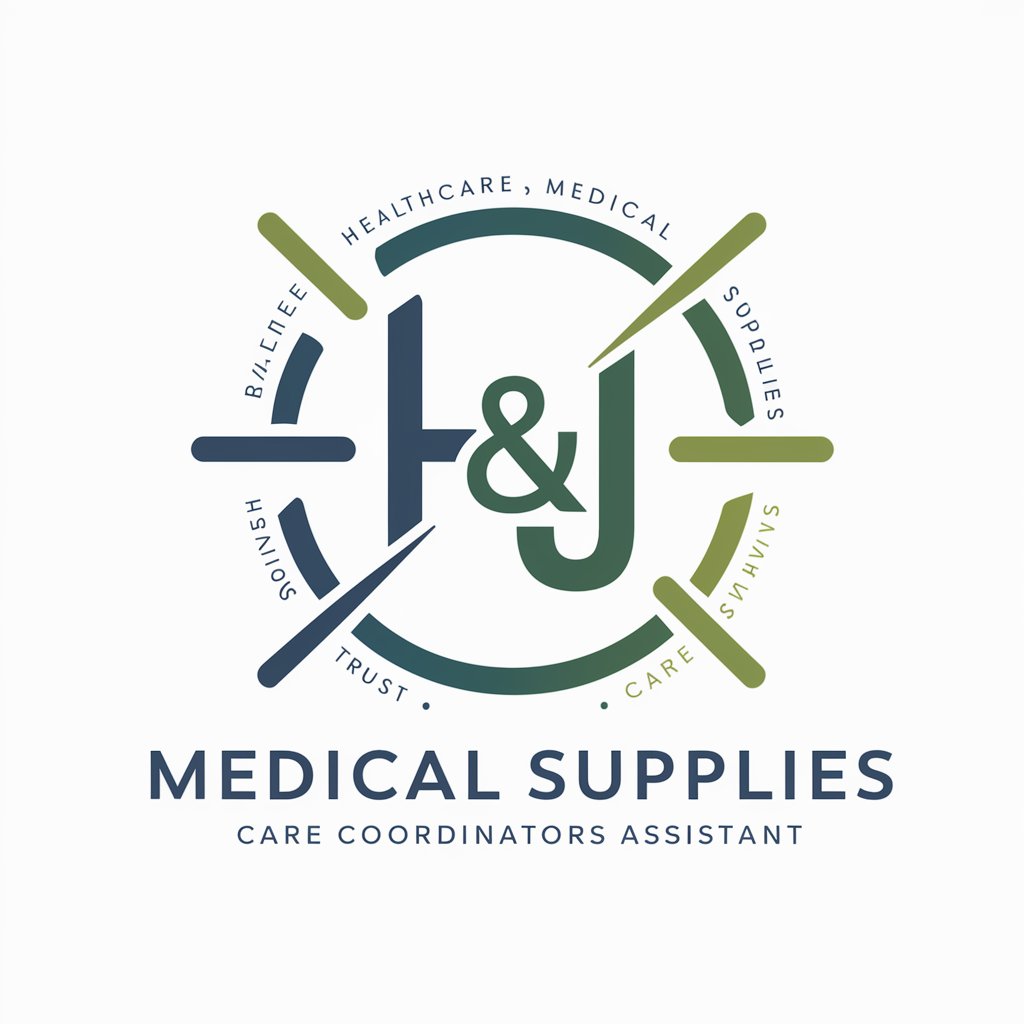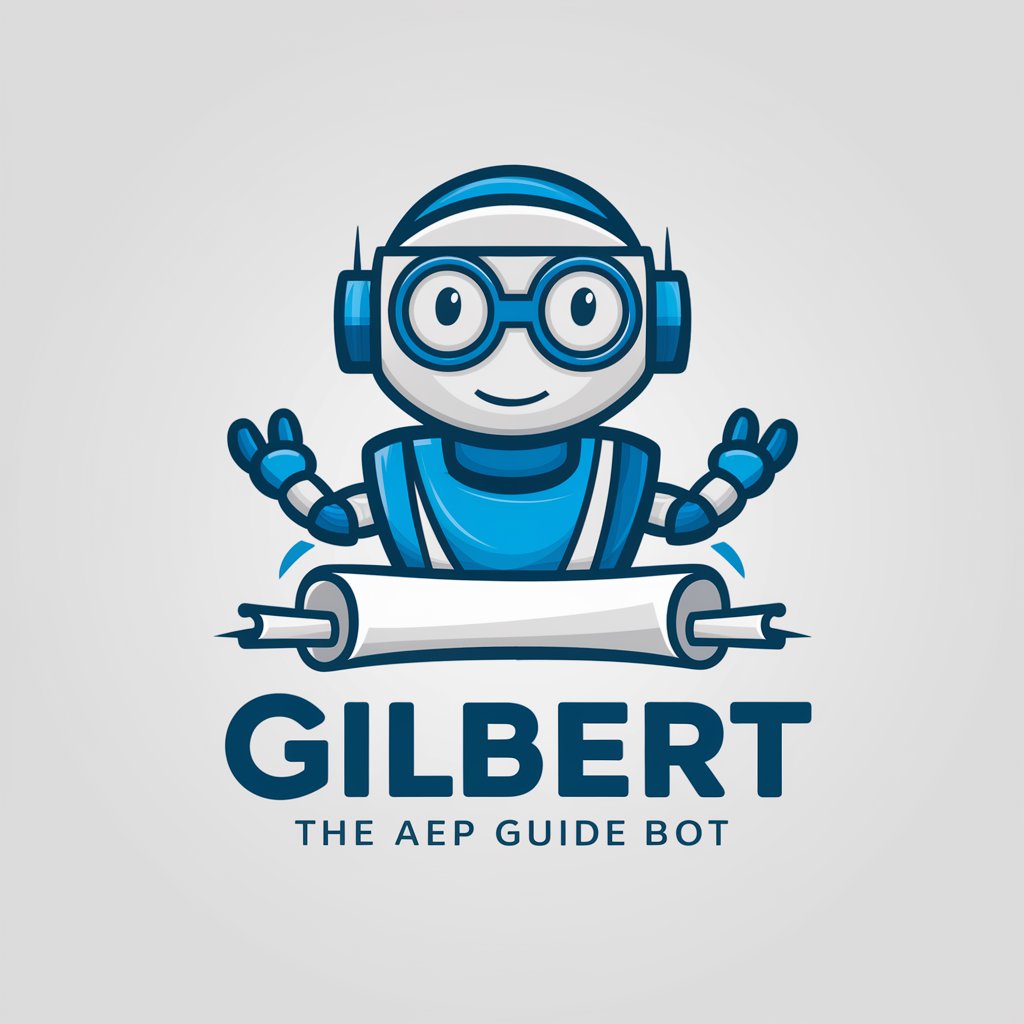5 GPTs for Medicare Guidance Powered by AI for Free of 2025
AI GPTs for Medicare Guidance are advanced tools leveraging Generative Pre-trained Transformers technology to offer tailored advice, information, and support related to Medicare. These tools analyze vast amounts of data to provide users with insights, suggestions, and answers to queries specifically concerning Medicare. By understanding and adapting to the nuances of Medicare-related topics, AI GPTs offer personalized solutions, making them invaluable for navigating the complexities of Medicare policies, benefits, and options.
Top 5 GPTs for Medicare Guidance are: Emme,H&J Medical Supplies Care Coordinators Assistant,Home Health Reg Expert,Health Network Navigator,Gilbert The AEP Guide Bot
Emme
Empowering Medicare and Communication Mastery

H&J Medical Supplies Care Coordinators Assistant
Streamlining Medical Supply Procurement with AI

Home Health Reg Expert
Navigating Home Health Regulations with AI

Health Network Navigator
Navigating Healthcare with AI
Gilbert The AEP Guide Bot
Empowering Medicare Decisions with AI

Distinctive Capabilities of AI GPTs in Medicare Guidance
AI GPTs for Medicare Guidance come equipped with unique characteristics such as natural language processing, which allows them to understand and respond to user inquiries in conversational language. They are highly adaptable, capable of handling tasks ranging from answering basic questions about Medicare to providing detailed guidance on policy options. Special features include the ability to learn from new information, offer technical support, perform web searches for the latest Medicare information, create informative visuals, and analyze data to personalize guidance.
Who Benefits from Medicare Guidance AI GPTs?
The primary beneficiaries of AI GPTs for Medicare Guidance include individuals new to Medicare, healthcare professionals seeking to assist patients, and developers looking to create Medicare-focused applications. These tools are designed to be accessible to users without programming knowledge, offering straightforward interfaces and clear, actionable information. For those with technical expertise, the tools also provide opportunities for customization and integration into more complex systems.
Try Our other AI GPTs tools for Free
Company Performance
Explore AI GPTs for Company Performance: tailor-made AI solutions for predictive analytics, strategic planning, and performance optimization. Unlock data-driven insights and enhance your business strategy.
Insightful Learning
Discover how AI GPTs for Insightful Learning revolutionize education with personalized, interactive learning experiences. Ideal for students, educators, and professionals.
Biological Research
Discover how AI GPTs are revolutionizing Biological Research, offering tailored solutions for data analysis, predictive modeling, and scientific literature generation.
Research Inspiration
Discover how AI GPTs for Research Inspiration can transform your research process with advanced AI technology, offering creative insights, solutions, and comprehensive support across various domains.
Compliance Education
Discover AI-powered GPT tools designed for Compliance Education, offering tailored learning, risk analysis, and regulatory updates to enhance organizational compliance.
Code Creation
Discover how AI GPTs for Code Creation can revolutionize your coding experience, offering personalized assistance, error detection, and automatic code generation to enhance productivity and learning.
Expanded Perspectives on AI GPTs in Healthcare
AI GPTs as customized solutions significantly impact various sectors, especially in healthcare and Medicare guidance. Their user-friendly interfaces simplify complex Medicare information, making it accessible to a broader audience. Moreover, the potential for integration with existing healthcare management systems or workflows can enhance efficiency and personalization of patient care, showcasing the transformative power of AI in navigating healthcare policies.
Frequently Asked Questions
What exactly are AI GPTs for Medicare Guidance?
AI GPTs for Medicare Guidance are artificial intelligence tools designed to offer personalized assistance and information on Medicare, utilizing the capabilities of Generative Pre-trained Transformers to understand and respond to user queries.
Can AI GPTs provide up-to-date Medicare information?
Yes, AI GPTs can access and analyze the latest data and policies related to Medicare, ensuring users receive the most current information available.
Do I need programming skills to use these AI GPT tools?
No, these tools are designed for ease of use by a wide audience, including those without any coding experience.
How can healthcare professionals benefit from these tools?
Healthcare professionals can use these tools to quickly find Medicare information, helping them to better advise their patients on coverage options and benefits.
Are there customization options available for developers?
Yes, developers can leverage APIs and other programming interfaces to customize and integrate the AI GPT tools into their own applications or systems.
Can these tools help with Medicare enrollment?
AI GPTs can guide users through the Medicare enrollment process, providing personalized recommendations based on individual healthcare needs and circumstances.
Is technical support available for these AI GPT tools?
Yes, many AI GPT tools for Medicare Guidance come with technical support to assist users with any issues or questions that may arise.
How do AI GPTs stay informed about changes in Medicare policies?
AI GPTs continuously learn from new data, including official Medicare updates and policy changes, ensuring the guidance provided remains accurate and relevant.